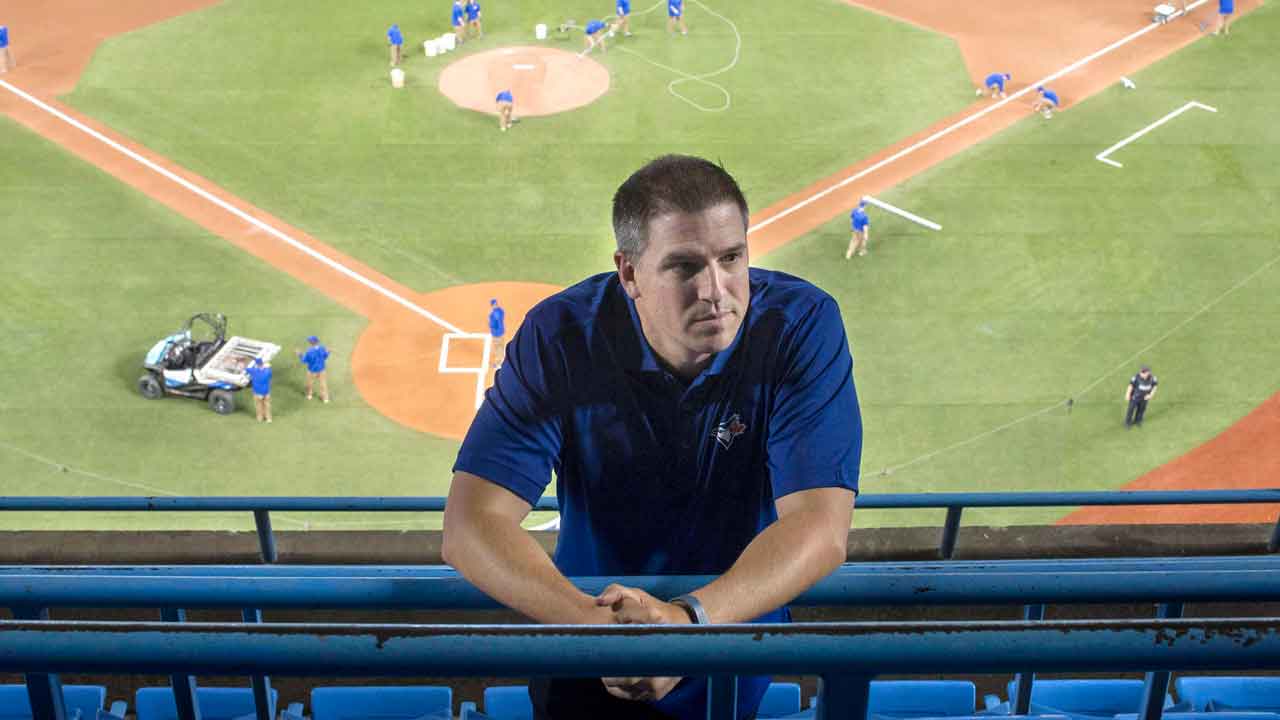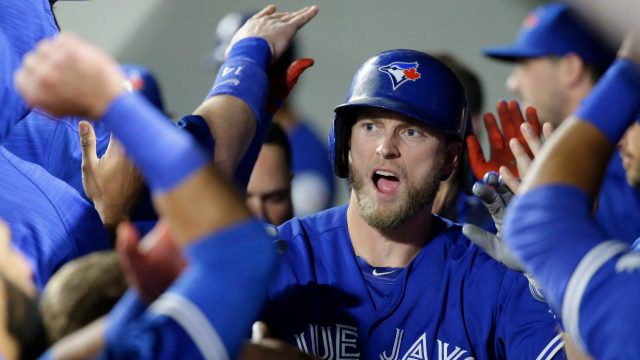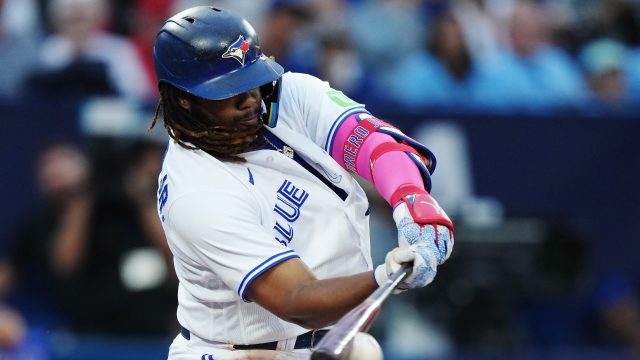
TORONTO — The Toronto Blue Jays are taking a spray-the-field approach in international free agency this year after one big all-or-nothing swing a winter ago, with power-hitting outfielder Junior Arias and toolsy catcher Franklin Rojas headlining their incoming class of talent.
Among the other notable players with whom they have reached an agreement with, some of whom begin signing Monday as the new period opens, are outfielder Pascual Archila, shortstops Angel Guzman, Juarlin Soto and Javado (JT) Bain Jr., and catcher Esmeiquel Arrieche, the cousin of Arizona Diamondbacks Gold Glover and former Jays prospect Gabriel Moreno.
It’s a circumstantial rather than strategic shift from their approach a year ago, when they signed outfielder Enmanuel Bonilla for $4.1 million, their largest ever bonus in the market class eating up 77.6 per cent of their $5,284,000 signing bonus pool.
Their 2024 bonus pool of $5.152 million — after the forfeiting of $500,000 for the free-agent signing of Chris Bassitt, who had been tendered a qualifying offer by the New York Mets — is being spread across multiple talented teenagers, with Arias and Rojas front and centre.
Arias, already approaching six-foot-four and 190 pounds, initially caught the Blue Jays’ eye with what appeared to be a big-power, outfield-corner profile. But Andrew Tinnish, the club’s vice president, international scouting and baseball operations, says the 17-year-old from the Dominican Republic has made recent strides that may shift him into a premium spot.
“We were fairly convicted that this guy had a chance to be a power-hitting right-fielder,” says Tinnish. “As this kid has gotten stronger and bigger, he’s actually become faster and more explosive and has these really pretty long strides in the outfield. You’re kind of like, ‘Oh man, this is a centre-fielder.’ That’s where it’s gotten a little more exciting with him. He’s worked his ass off. He’s just improved in every area.”
Rojas, a 16-year-old from Venezuela, has a chance to be a two-way catcher, impressing with a high baseball IQ as well as a diverse toolkit.
“This guy, if you go watch him work out, you’re like, wow, this guy can really throw, wow, this guy can really move behind the plate and run, and wow, this guy has power,” says Tinnish. “So he’s a very measurable tools guy, probably a power over bat guy right now, but it’s more of an explosive power tools type of skill-set.”
In the second tier of incoming prospects are Guzman and Archila, a Venezuelan outfielder who turns 17 next week and has been training in the Dominican Republic the past few years.
He’s been on the Blue Jays’ radar since he was 13, first catching Tinnish’s eye by running out to centre field after finishing batting practice and “just power-shagging, taking it very seriously.”
“Left-left guy with a pretty swing. Very handsy. Has good at-bats,” Tinnish continues. “He’s got instincts out there. He’s got some glide. And he’s a good, intelligent on-the-field player with a good feel for the game.”
Meanwhile Guzman, a switch-hitting 17-year-old from the Dominican Republic, owns “what I think is one of the best swings in the class and he’s definitely the best hitter in our group,” says Tinnish.
“Pure hitter,” he adds. “The power that he has now, it’s translating in games. He’s barrelling balls in games similar to the balls that he barrels in BP. He has the footwork and actions to stay at shortstop. The biggest question will be how the arm develops.”
Soto, another left-handed hitting middle-infielder, is in the next tier down and is part of a deliberate push by the Blue Jays to better balance out the handedness in their farm system. He’s shown some gap power with a short swing.
Bain, 16, is a right-handed hitter from the Bahamas who will sign as a shortstop and should have enough arm to stay there if he can build enough consistency with his glove. If not, he could slide to third or centre field as a “super wiry, twitchy athlete,” says Tinnish.
“He’s really interesting,” he adds. “The kids in the Bahamas have polished swings, but they’re a little raw, relative to the Latin American kids, because they don’t have the same game experience and they don’t face the same level of competition. It’s a little bit more of a leap of faith on how they’re going to handle pro ball.”
Arrieche is signing as a catcher but like his cousin, who started out on the dirt before moving behind the plate once he signed with the Blue Jays, is athletic enough to play third base, too. He’ll need that versatility to play consistently with Rojas slated for the bulk of the catching work in the Dominican Summer League, something Arrieche got a taste of at the U18 World Cup when he both caught and played third base for Venezuela.







